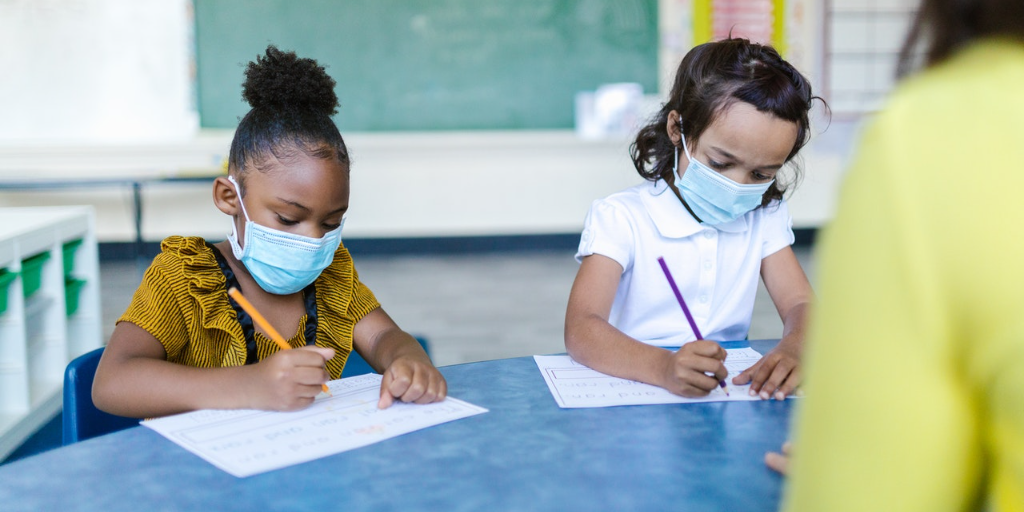When will it be possible to finally call COVID-19 an “endemic” disease?
Lesson summary
Hi there, it’s Jeff and this is Plain English lesson number 453. JR is the producer and he has uploaded the full content to PlainEnglish.com/453.
Coming up today: Two years this pandemic has been going on, and it’s possible to see how COVID-19 can become endemic, meaning that it follows a regular and predictable pattern. The English expression we’ll talk about today is “build up” and we have a song of the week. Let’s dive in.
Moving toward endemic COVID
The government of Great Britain released a plan called “Living with COVID.” Under the plan, all legal restrictions related to the pandemic have been lifted in England: masks are not required in public places, travelers are not required to test before returning home, occupancy restrictions have been lifted, and contact tracing has been cancelled. Even people who test positive are not legally required to self-isolate, though that is still recommended.
In the U.S., most of the pandemic rulemaking is done at the city and state level. And many states are now starting to say that vaccination is no longer required to enter indoor establishments like bars, restaurants, and gyms. They’re also removing indoor mask mandates.
It’s similar in Europe. Just months ago, Germany and Austria had been debating making vaccination mandatory for their whole populations. Today, they’re lifting restrictions, though mask wearing is still expected to be required in many places in Germany.
Just one thing: people are still getting COVID-19. But rich world governments, if not always their top doctors, are starting to treat COVID-19 like an endemic disease. But what does that look like?
Diseases are either epidemic or endemic. When they’re epidemic, they spread rapidly through a population, can overwhelm hospitals and health-care providers, and can rapidly cause serious illness or death. An endemic disease also can cause serious illness and death, but it doesn’t spread as rapidly and doesn’t take the population by surprise.
An endemic disease, though, can still be bad. AIDS, for example, was an epidemic disease for many years before effective treatments and prevention were developed. A disease moves from epidemic to being endemic when its spread slows and when people have the tools to reduce its severity.
That’s where we are with COVID-19. People have protection from vaccines or from natural immunity—in other words , they got it before and their bodies have built up some immunity. There are also better treatments available, which make getting COVID-19 much less dangerous than before. Each successive wave of the disease is less severe than prior waves, even if the number of cases is high.
If COVID-19 follows an endemic pattern, there will be a range of potential case counts and deaths in any given year . The disease may also follow a seasonal pattern, where most people get infected during the winter, for example. And not every year will be exactly the same. Just like the flu, some seasons may be mild, while other years may be worse. But the incidence of the disease will be generally predictable, within a range of potential outcomes.
In the rich world, people who die of COVID-19 in the endemic phase will likely be the elderly, people with compromised immune systems, or those who refused to be vaccinated.
Unsurprisingly, regular COVID-19 vaccination will continue to be advised. Vaccine makers will study the variants present in the world and consistently adjust their formulas so that the vaccines target the variants spreading in a given season , much like how the influenza vaccine is developed each year . Moderna, for example, is already developing booster shots that target the Omicron variant that’s currently in circulation.
And new variants are always possible. Experts have predicted the end of the pandemic before, only for a new variant to sweep through the world. For that reason, we may see localized or temporary return of mask-wearing, social distancing, working at home, temperature checks, and occupancy limits.
There is another, sad characteristic of endemic diseases that COVID-19 will probably also share. Measles, cholera, and, more recently, AIDS are all endemic diseases that affect poor countries far more than rich ones. Countries that don’t have access to the latest vaccines, or whose health care systems are not as developed, will probably suffer more. As the experience with AIDS shows, ignorance by national leaders and the population can lead to needless suffering.
Despite the changes in recent laws, endemicity is still in the future. But that future appears much less far off than at any point before.
Not yet ready to believe…
I don’t know…I almost don’t know what to believe anymore. Just a few months ago, the U.S. had 800,000 new cases of COVID-19 per day, the most ever in the whole pandemic. Yes, it’s down 90 percent now. But do you remember the panic in the air when you first heard the word, “Omicron variant”? And then you heard the vaccines were not as effective against it?
What if that happens again? Obviously, I’m not looking forward to a day where COVID still kills many, many people a year. But hopefully in a year or two, it will just be a disease like others we have to live with on this planet.
Great stories make learning English fun

